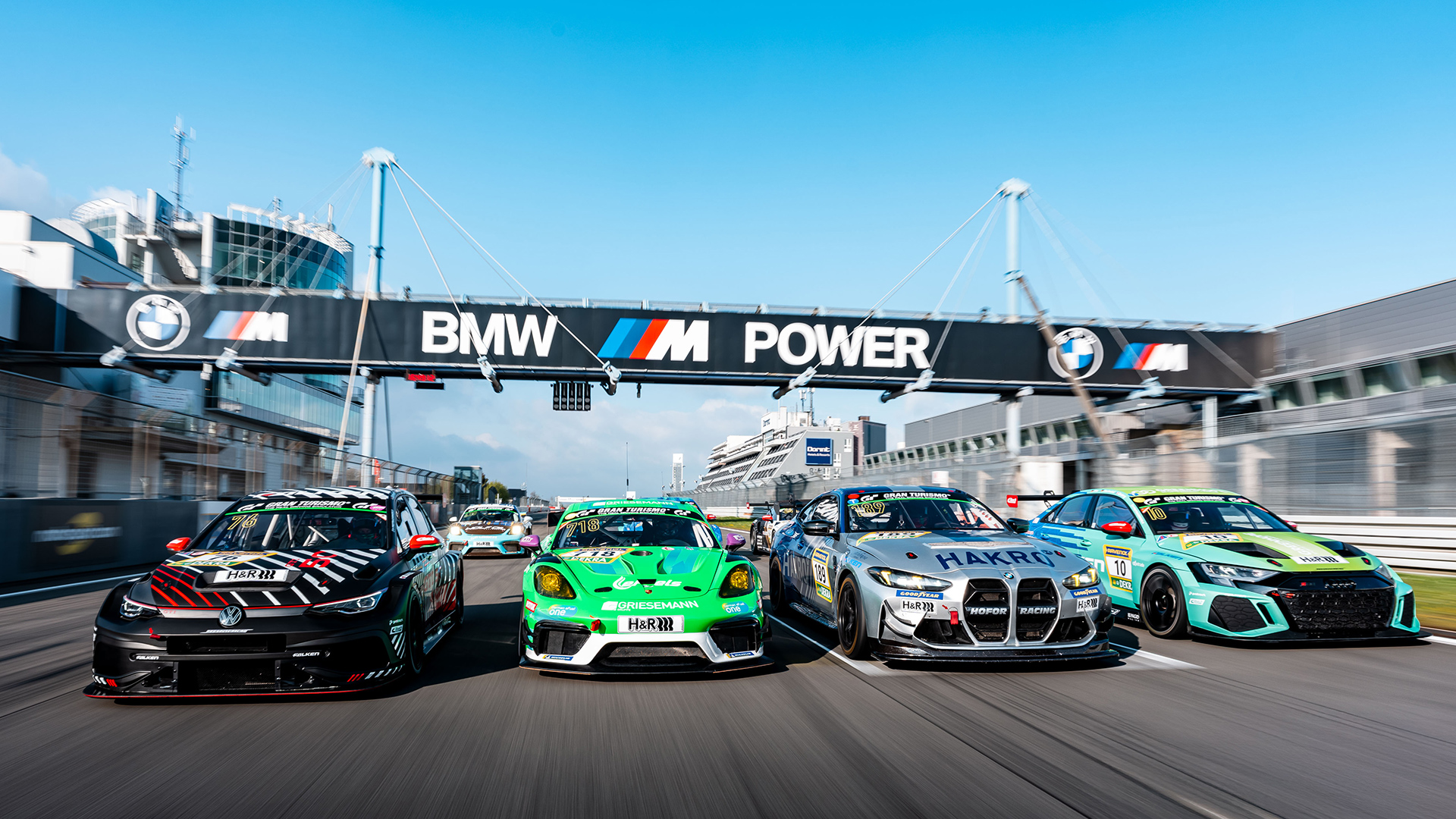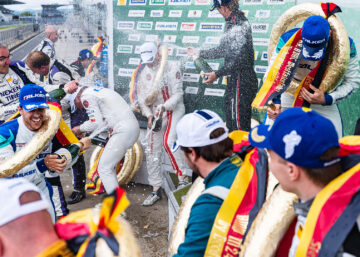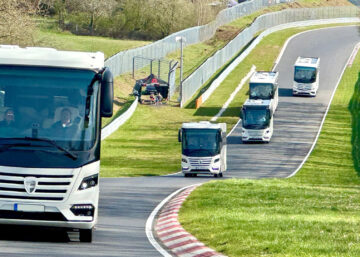The AT class in the ADAC Nürburgring Langstrecken-Serie is booming. Originally created for the use of alternative fuels, the sustainable technologies currently being trialled go far beyond this. More and more teams are consciously focussing on sustainability.
‘I am very happy that the AT class in the NLS is picking up speed and gaining more and more popularity,’ says Christian Vormann, Head of Sport at the NLS. “The fact that we have been using and trialling sustainable technologies in racing for more than 25 years now is primarily due to our open multiclass regulations. This is not possible in most other racing series. The ADAC Nürburgring Langstrecken-Serie is the ideal platform for developments – a paradise for engineers and the perfect platform for sustainable technologies.”

Team Four Motors is a pioneer in this field. Since 2003, the racing team of founder and visionary Thomas von Löwis of Menar and rapper Smudo has been promoting the topic of sustainability in motorsport. Their biodiesel Beetle was the first alternative racing car to win against vehicles powered by fossil fuels. This was followed in 2006 by the Ford Mustang GT RTD with a body made from renewable raw materials. Another milestone was a Porsche Cayman GT4 Clubsport in 2017, which was successful with re-refined oil, E20 fuel and lightweight bio-components. Four Motors works with partners to continuously develop sustainable components such as long-lasting tyres and the world’s first CO₂-neutral wheel rim.
The team currently runs three vehicles in the AT class – a Porsche 911 and two Caymans. One of the drivers: Michelle Halder. ‘The older generation in particular loves the classic motorsport sound and many are sceptical when it comes to all-electric series like Formula E,’ she says. “The use of Four Motors in the NLS offers a great alternative: the familiar sound, exciting duels and speed, coupled with sustainability in a powerful Porsche. We can also win over die-hard “petrolheads” for this important topic.”

Manthey and the Griesemann Group are also focussing on sustainability and innovative technologies. A key aspect of the latest project is the use of synthetic petrol from the eFuels class, which can be used in engines without any modifications. Another aspect is the use of recycled carbon fibre-reinforced plastic (CFRP) in a Porsche 718 Cayman GT4 RS Clubsport M developed by Manthey.
‘I am pleased and proud that we are competing with a car that is partly made of recycled carbon fibre and runs on synthetic fuel,’ says Nicolas Raeder, Managing Director, Manthey Racing GmbH. ‘We have been looking at the issue of sustainability and, in this context, renewable fuels for some time and are delighted to have found a strong partner for this endeavour in the Griesemann Group.’

Max Kruse Racing has also been active in the alternative fuel class since last year. Up to six vehicles are used, including a Porsche 911 GT3, two Volkswagen Golf VIIs, a Golf GTI Clubsport 24h and two Audi RS3s. The team relies on the biofuel E20 Gasoline developed by Volkswagen, which is 60% renewable. “At the beginning of 2024, alternative fuels were still completely new territory for us. We combine sustainability with performance and firmly believe in this approach for the future of motorsport,” says Timo Schupp, Team Principal at Max Kruse Racing. ‘We want to continue testing and developing.’ The team plans to use further sustainable technologies in the future.
Hofor Racing by Bonk Motorsport will also be competing in the AT class from the third race of the 2025 season. The team led by Michael Bonk has won the NLS championship four times – in 2002, 2006, 2016 and 2017. Bonk uses the same fuel as the Griesemann Group’s Cayman. “Why are we doing this? The answer is simple: motorsport has to become fit for the future,” says Bonk, who drives the BMW M4 GT4 together with Martin Kroll and Maximilian Partl.
NLS partner Goodyear promotes sustainable development
Bonk Motorsport and Four Motors rely on Goodyear racing tyres to pursue a sustainable approach. Goodyear is an environmentally certified tyre manufacturer at the highest level of the FIA Motorsport Environmental Programme. ‘We are continuously developing our Goodyear racing tyres to improve performance and safety and have been focusing on sustainability for years,’ explains Alexander Kühn, Sales Manager of the Customer Racing Program at Goodyear. “In our current portfolio, we have optimised many tyres so that the proportion of sustainable materials and durability have increased significantly. In concrete terms, this means that the tyres last longer, the teams save costs and we conserve resources.”
Taking Four Motors as an example: the team drives double stints on the Nordschleife in the Porsche 911 GT3 Cup in close cooperation with Goodyear engineers – without any noticeable loss of performance – and with tyres that contain 40 per cent sustainable and recycled materials. ‘Motorsport should serve as a platform to drive forward the development of future-proof and sustainable raw materials,’ says Kühn. ‘In my opinion, this is a cornerstone for the future of motorsport.’

Looking back: Further sustainable milestones at the NLS
Alternative fuels have been a topic in the Green Hell for more than 25 years. As early as 1999, Paul Martin Dose used biodiesel at the NLS – first in a VW Golf and later in an Audi A3 TDI – to demonstrate the performance of alternative fuels. In the same year, a natural gas-powered Audi A4 quattro STW from Abt Motorsport achieved a remarkable seventh place in the overall standings. In 2007, Heico Sportiv celebrated the first victory of a bioethanol-fuelled racing car with a Volvo S40 and continued the development with a Volvo C30. In 2010, the Porsche 911 GT3 R Hybrid experienced its world premiere in racing, followed by the first victory of a hybrid vehicle in the 2011 NLS. Also historic: the first class victory of a hydrogen-hybrid-powered Aston Martin Rapide S in the 2013 season.














